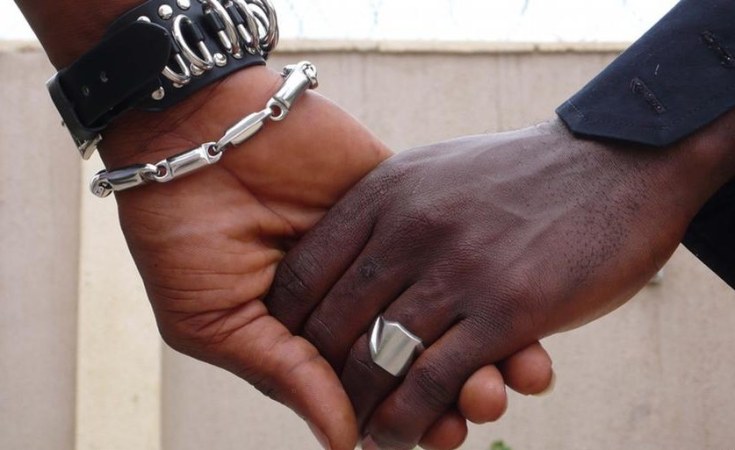United Nations — A group of UN experts* on human rights has blasted the Government of Uganda for making homosexuality punishable by death.
"It is an egregious violation of human rights, the experts said, urging Uganda's president not to promulgate laws that take aim at and further criminalise people identifying as lesbian, gay, bisexual and transgender (LGBT), and those who support and defend their human rights.
"The imposition of the death penalty based on such legislation is per se an arbitrary killing and a breach of article 6 of the International Covenant on Civil and Political Rights (ICCPR)," the experts said, noting that this advice has been provided on several occasions to the Ugandan State in the past, according to a press release.
The Ugandan parliament recently approved harsh anti-LGBT laws that target and jeopardise the rights of LGBT persons and those who support and defend their human rights. The Ugandan legislation has been criticised as one of the world's harshest anti-LGBT laws.
"The imposition of the death penalty for same-sex intimacy - including so-called 'serial homosexuality' - is an egregious violation of human rights," the UN experts said.
They warned that the new legislation would exacerbate and legitimise continued stigmatisation, violence, harassment, and discrimination against LGBT persons and impact all spheres of their lives.
"LGBTI persons will constantly live in fear and stress for their life and physical integrity for simply living according to their sexual orientation," the experts said, highlighting also the mental health-associated risks.
The experts said consistent acts of aggression, intimidation, and harassment and the proposed legislation threatened the physical and mental integrity and health of lesbian, gay, bisexual, trans and other gender diverse persons in Uganda.
"Culture can never be a justification for such flagrant violations of human rights," the experts said. They recalled the obligation of all stakeholders, including States, civil society and businesses, to promote social inclusion and contribute to stopping human rights abuses.
According to the experts, the Ugandan legislation comes after years of State-instigated and perpetuated discrimination and violence on the basis of sexual orientation and gender identity.
The experts repeatedly raised serious concerns about escalating risks to the human rights of LGBT persons in Uganda over the past 15 years, including when other iterations of so-called "anti-homosexuality" laws were proposed in 2009, 2012, 2013 and 2014.
In all cases, the draft bills were assessed as potentially leading to immediate violations to a substantial range of human rights, including the rights to life, liberty and security, privacy, equality and non-discrimination, freedom of association, peaceful assembly, opinion, expression, and the highest attainable standard of physical and mental health, not to be subject to arbitrary arrest or detention, and the absolute prohibition against torture or cruel, inhuman, or degrading treatment or punishment.
"The new law is no exception and forms part of a worrying trend of intolerance, exacerbating stigma against LGBTI persons without any grounds or evidence," they said.
The experts recalled that every person has the right to live peacefully and free from discrimination and violence. "We urge the President of Uganda to tread a new path towards respect of human rights and acceptance of difference, and reject the proposed law," they said.
*The group of experts include: Mr. Víctor Madrigal-Borloz, Independent Expert on protection against violence and discrimination based on sexual orientation and gender identity; Irene Khan, UN Special Rapporteur on the promotion and protection of the right to freedom of opinion and expression; Nazila Ghanea, Special Rapporteur on freedom of religion or belief; Ms. Margaret Satterthwaite, Special Rapporteur on the independence of judges and lawyers; Dr Alice Jill Edwards, Special Rapporteur on torture and other cruel, inhuman or degrading treatment or punishment; Ms. Reem Alsalem, Special Rapporteur on violence against women and girls, its causes and consequences; Mary Lawlor, Special Rapporteur on the situation of human rights defenders; Ms. Miriam Estrada-Castillo (Chair-Rapporteur), Mr. Mumba Malila (Vice-Chair), Ms. Priya Gopalan, Mr. Matthew Gillett, and Ms. Ganna Yudkivska - Working Group on arbitrary detention; Ms. Alexandra Xanthaki, Special Rapporteur in the field of cultural rights; Dr. Ana Brian Nougrères, Special Rapporteur on the right to privacy; Ms. Tlaleng Mofokeng, Special Rapporteur on the right of everyone to the enjoyment of the highest attainable standard of physical and mental health; Mr. Clément Nyaletsossi Voule, Special Rapporteur on the rights to freedom of peaceful assembly and of association; Ms. Pichamon Yeophantong (Chairperson), Mr. Damilola Olawuyi (Vice-Chairperson), Ms. Fernanda Hopenhaym, Ms. Elżbieta Karska, and Mr. Robert McCorquodale of the Working Group on the issue of human rights and transnational corporations and other business enterprises; Mr. Gerard Quinn, Special Rapporteur on the rights of persons with disabilities; Morris Tidball-Binz, Special Rapporteur on extrajudicial, summary or arbitrary executions.
IPS UN Bureau Report
Follow @IPSNewsUNBureau


